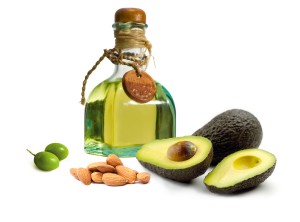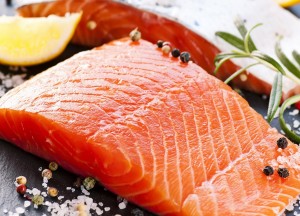Fat has been given a bad rap. In the 1980’s, the surgeon general warned against the effects of a high fat diet, encouraging all to follow a low-fat diet for optimal heart health. However, over the next 30 years, the prevalence of heart disease would soon be on the rise, along with diabetes and obesity. As the recommendation to decrease fat came along, manufacturers quickly caught on and began replacing fat with sugar, salt and other chemicals to decrease fat without trying to alter flavor.
Since 1980, the obesity rate has more than doubled. In 1985, no state had obesity rates of higher than 15% and in 1991 not higher than 20%. Today, every state is at a minimum of 25%, with an overall obesity rate in the US of 38%. (NHANES 2013-2014) This recommendation to restrict fat actually made us fatter!
Obesity is one of the main contributing factors to most chronic disease including diabetes, heart disease, arthritis/inflammation and some cancers. Diet plays an enormous role in controlling many of these conditions. In the past, fat has been blamed. However, more and more evidence is emerging proving otherwise. Understanding fats can sometimes be challenging.
Why do we need fat?
- Sixty percent of our Brains are fat
- All of our cells are made up of fat
- Helps aid satiety
- Absorbs fat soluble vitamins (A, D, E, K)
- Brain is ketone adaptable which means we do not necessarily need carbs/glucose for brain energy, ketones can be used as energy
- Studies show a diet higher in fat and less sugar results in lower risk of cognitive decline by 47%*
Fat is important for each of us. In fact, fat does not make us FAT! One of the major myths that has finally been debunked is DO NOT FEAR THE FAT! Fat can, on the contrary, help with weight loss by speeding up your metabolism and decreasing inflammation associated with chronic disease, while sugar will do the opposite. Carbohydrates are your body’s first energy source. Therefore, when utilizing the energy, you consume from carbohydrates through exercise, your body will burn through the carbohydrates. However, if you consume more carbohydrates then what you are burning, then this energy will be stored and eventually turned into fat. On the other hand, if you reduce your carbohydrate intake by consuming vegetables, small amounts of whole grains and fruit as your primary source of carbs and increase fat with adequate protein, you will force your body to burn fat as energy.
Not all fats are healthy. It is important to avoid trans fats and damaged or rancid fats. Consume more unsaturated fats by including a wide range of healthy plant based fats, omega 3 fats from fish and some plants and small amounts of beneficial saturated fats.
Trans fats are processed and put into many foods to prolong the shelf life. Avoid foods that contain hydrogenated oils. Also, cooking with the right oil can prevent damaging your oil, which is harmful to your body. So, use high heat oils and fats with higher smoke points like coconut oil, ghee, grass fed butter, and avocado oil. Olive oil can be used for cooking but do not exceed temperatures higher than 325 degrees Fahrenheit. It is best to use olive oil for light sautéing or in salads. Nut and seed oils are generally high in polyunsaturated fats and damage quickly when exposed to heat. Never reuse oils.
Below is a chart of oils and fats to help better understand which fats to choose:
Monounsaturated Fat (consume most often) Anti-inflammatory |
|
| Polyunsaturated Fat
Omega 6 (~30 % daily fat calories) Controllers
Omega 3 (~10 % daily fat calories) Brain health/fluidity
|
|
Beneficial Saturated Fats (~10% daily fat intake)
|
|
| Damaged Fats and oils (Limit/try to avoid) Contribute to inflammation |
|
So now that you have a better understanding of fat, it is time to enjoy fat. Do not fear it!
Enjoy some of these recipes below to embrace the benefits of healthy fat:
*Catherine Féart, PhD et al. Adherence to a Mediterranean Diet, Cognitive Decline, and Risk of Dementia. JAMA.2009.1146




